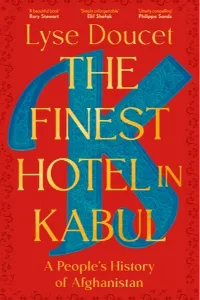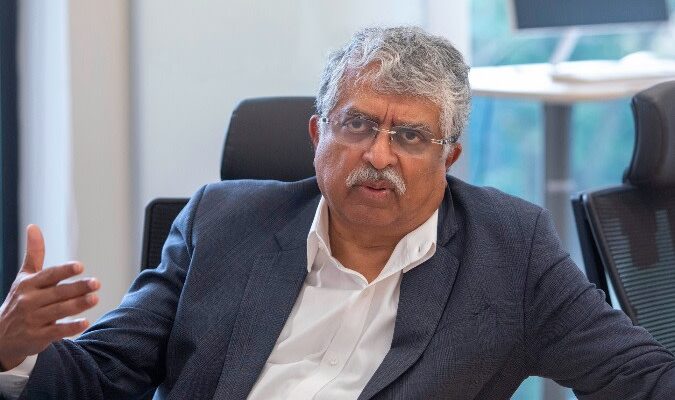Unlock the Editor’s Digest for free
Roula Khalaf, Editor of the FT, selects her favourite stories in this weekly newsletter.
There is a genre of literature in which the hotel is more than merely a place to stay. In the right hands a hotel can become a plot device, a narrative thread binding together the souls who drift through its lobby, a microcosm of society at its most fragile or flamboyant.
In The Finest Hotel in Kabul by Lyse Doucet, the Inter-Continental Hotel, which has sat fortress-like above Afghanistan’s embattled capital for over half a century, lands somewhere between the Berghof Sanatorium in Thomas Mann’s The Magic Mountain and the Overlook Hotel in The Shining. It is imbued with historical symbolism, scarred by violence, tinged with menace, and has seen more than a few deranged murderers pass through its halls.
Yet Doucet’s telling is far from grim. It’s full of warmth, wit, and a lovely eye for the human stories that make the hotel not just a monument to tragedy, but also love and resilience. It is also the setting for a retelling of the tragedy of Afghanistan in which every new regime made their mark first on the “Inter-Con” — a bauble to be displayed or rebranded — “whoever is the donkey, we are the dress,” as one staff member recalled.
“History — good, bad and bloody — was made within its walls,” writes Doucet. “Politics, like hotel guests, checked in and out.”
During a year of reporting in Kabul in 2002 I never stayed at the Inter-Con (the BBC, Doucet’s employer, had booked the whole place). But I went whenever I could to admire its faded grandeur — and because it was the only place in Kabul with a working photocopier (when the power was on). This is the book about an Afghanistan I never knew that I always wanted to read.
A journalist’s relationship with a hotel, especially in a war zone, is often fraught. In places where front lines shift daily and violence is never far away, hotels like the Sheraton or the Al Rasheed in Baghdad, the Rixos in Tripoli, or the Commodore in Beirut, acquire an almost mythic quality, equal parts camaraderie and claustrophobia. Yet their protective walls also remind us of the gulf between their own precarious safety and the daily lives of civilians outside — and inside. The hotel has never been neutral ground: it was a charged space, a reflection of the conflict itself.
The Inter-Con embodied this duality. To write about it, Doucet has done her best to pop the bubble that separated her own privileged existence from the country as a whole. She has written the stories of the staff who folded her sheets and made her breakfast during her decades of travelling to Afghanistan and who she got to know as family.

There is Hazrat the housekeeper, who has been working there since the hotel opened in 1969; Amanullah the chief engineer; Mohammad Aqa the restaurant manager; and Abida the head chef, who carried the guilt of her husband’s death — killed by a rocket shortly after she insisted they return to Kabul from Pakistan.
Their collected lives unfold against the backdrop of war and revolution all framed by the slowly deteriorating symbol of Afghanistan’s golden years, an age of hope before their country was shredded.
When it opened, the Inter-Con was a beacon of cosmopolitan luxury and a promise of Afghanistan’s future: “the whole place was an iridescent bubble floating above the city’s cares,” writes Doucet. But soon it would witness the first of a number of coups and wars, where staff learned to quickly replace portraits of one ruler with another.
Soon came the Soviet occupation, parties with vodka and toasts, and civil war. “The hotel saw everything. No longer simply the breathtaking mountain vistas, now it also had the best view in the house of the Soviet sound-and-light show” of warplanes bombing mujahedin north of the capital. Then came the Soviet withdrawal, and the war of Kabul, when Ahmad Shah Massoud fortified the hotel itself to shell a rival commander. The end of the fratricide came with the arrival of the Taliban in 1996, when its leader, Mullah Mohammed Omar, visited the Inter-Con. Meeting the Amir, as they called him, “No one spoke of the music that once electrified the Pamir supper club . . . the way men and women happily dined and danced together. They spoke of a national hotel, a house as familiar to them as their own home — a mirror of a nation on its knees.”
Then came 9/11 and the arrival of the Americans and the US-backed Northern Alliance. “Everyone had a dream. The war was over,” as Doucet puts it. But it was not to be. Slowly the Inter-Continental was sucked again into war, becoming the target for suicide bomber attacks in 2011 and 2018. And then, in 2021, the Taliban were back — a vignette which electrifies the beginning of the book as Doucet recounts the fall of Kabul unfolding in the middle of a wedding party hosted at the Inter-Con.
What Doucet achieves is both powerful and charming at the same time. The Finest Hotel in Kabul is a meditation on memory, resilience, and the strange intimacy of public spaces. In an age when most hotels blur into the anonymous comfort of global chains, the Inter-Con reminds us that some buildings are so much more.
The Finest Hotel in Kabul: A People’s History of Afghanistan by Lyse Doucet Hutchinson Heinemann £25, 448 pages
Charles Clover is the FT’s security and defence correspondent
Join our online book group on Facebook at FT Books Café and follow FT Weekend on Instagram, Bluesky and X


